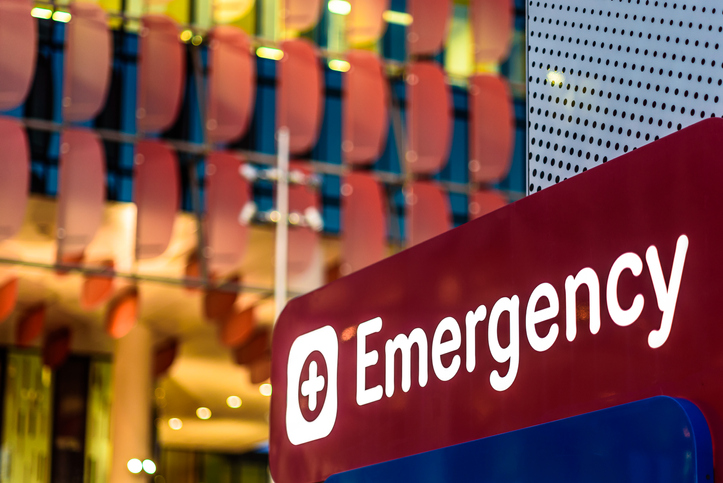Who Pays for Medical Bills After a Major Accident?

People who have been in a major accident are all too likely to face significant medical bills, worth many thousands and even millions of dollars. But if the accident is the fault of someone else, who pays for these medical bills?
You Pay But Are Compensated Later
If the accident is the responsibility of someone else, they are liable for your injuries. Liability means they are responsible for medical and other costs (such as wages lost from work and pain and suffering) stemming from injuries caused by the accident or incident they are responsible for.
However, it may take a very long time before you receive this money from a liable party, either through a negotiated settlement or a jury verdict in civil court. In the meantime, YOU are responsible for paying medical and other bills — for ambulances, doctor’s visits, hospital stays, surgeries, pharmaceuticals, and more — as they come in.
However, a personal injury claim, if successful, will result in your receiving compensation for these costs. They are usually referred to as compensation for damages. The damages are the bills you had to pay, the money you lost from missing work, and your pain and suffering.
Some Exceptions Exist
There are a few exceptions to the general rule that you are responsible in the short term for all costs related to your accident injuries.
No-Fault Insurance States
The first exception has to do with injuries caused by vehicle accidents in no-fault insurance states. “No-fault” means that an individual’s insurance will pay for injuries they suffer in a vehicle accident, without any attempt to determine who was at fault. If you are injured, for example, your insurance company pays for treatment of these injuries, up to the coverage limit. You need, of course, to be insured and pay the premiums for vehicle insurance.
After you reach the coverage limits of no-fault, your health insurance should pay if you have health insurance. If you do not have health insurance, you will be responsible for the bills.
In some no-fault states, people whose injuries are serious or have caused significant disability can also pursue damages through a third-party or personal injury claim. This is known as “stepping outside of no-fault.”
Medical Coverage for Accidents
Not all states are no-fault; a number of states are “fault” states for vehicle insurance, which means that the at-fault party pays for damages.
In some fault states, though, laws require that drivers have medical coverage for accidents. This is often called “med pay.” If you are injured by an at-fault driver with med pay, that driver’s insurance should cover your damages up to the policy limit, which is usually $10,000.
After the policy limit is exceeded, however, you are responsible for paying them.
Premises Liability
If you are injured on someone’s premises and it was their fault, you may be responsible for payment of medical bills unless the owner of the property carries insurance specifically designed to pay for medical bills for injured people.
In short, this is a version of med pay, but for stores, hotels, landlord’s property, and other premises on which someone may be injured or slip and fall.
Accidents Related to Work
If you have been hurt on the job due to the fault of another party, and are eligible to file a worker’s compensation claim, your medical bills and specific other costs will usually be paid by the insurer of worker’s comp, up to a certain maximum.
How a Legal Loan Can Help Tide You Over
As you can see, being severely injured all too often leaves you on the hook for major medical bills out of your own pocket. If you have been seriously injured by a vehicle in a fault state, on property owned by someone else who does not have med pay, or by improper medical treatment, where can you turn to pay onerous bills that may be causing extreme financial hardship for you and your family?
Many people, of course, turn to personal injury claims or third-party insurance claims. But it can take months and even years for these cases to be resolved and for you to receive justice.
Isn’t there a better way?
One method is to get a legal loan. Legal loans tide you over financially until your case resolves. A legal loan is essentially a bridge to a legal settlement.
Importantly, though, a legal loan is not like a personal loan from a bank. It is a non-recourse loan that is more like a cash advance. A legal loan can be used for any needed item, such as housing costs (rent or mortgage), groceries, medical bills, and utilities.
Most importantly, you will not owe anything if your case is not successful. Yes, that’s correct, you won’t owe a dime.
If your case is successful, you’ll repay the legal loan at a reasonable rate of interest.
Let Lawstreet Capital Help
Not only that, but a pre-settlement funding application is simple and convenient. You can do it all online. There is no credit check necessary. You can receive approval in 24 hours.
Lawstreet Capital can help you with your legal case today by offering a pre-settlement loan. Call our friendly representatives now!




